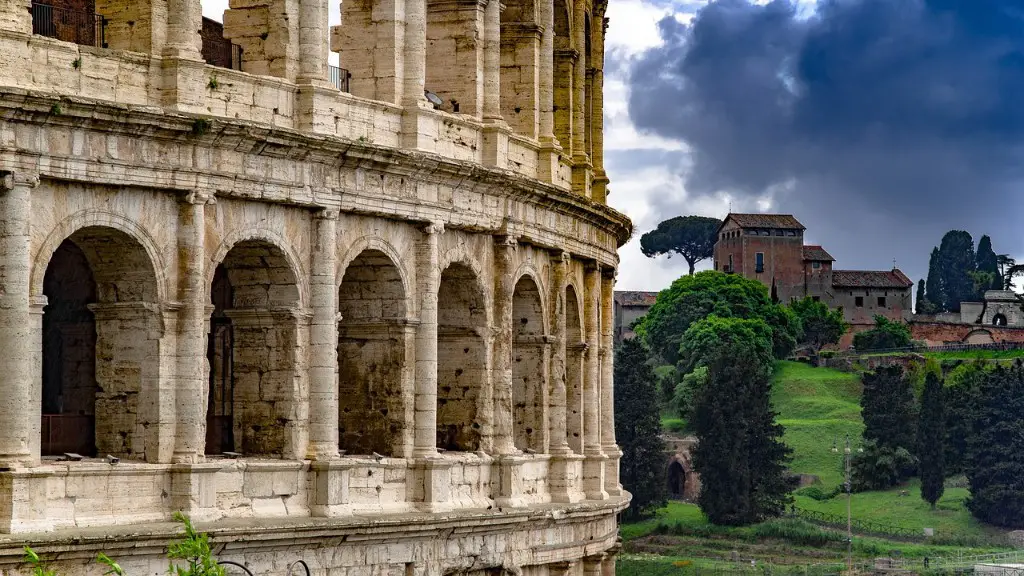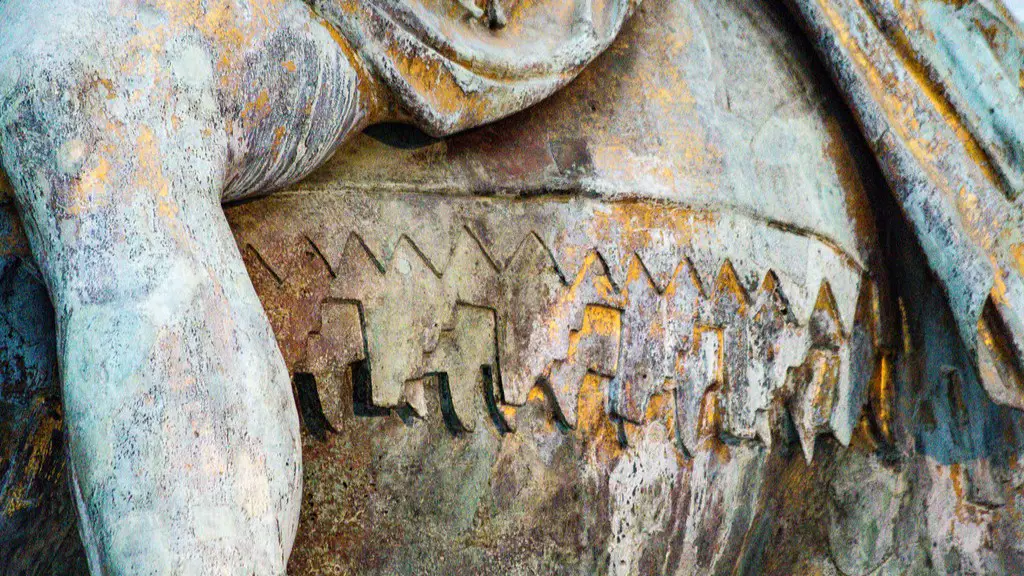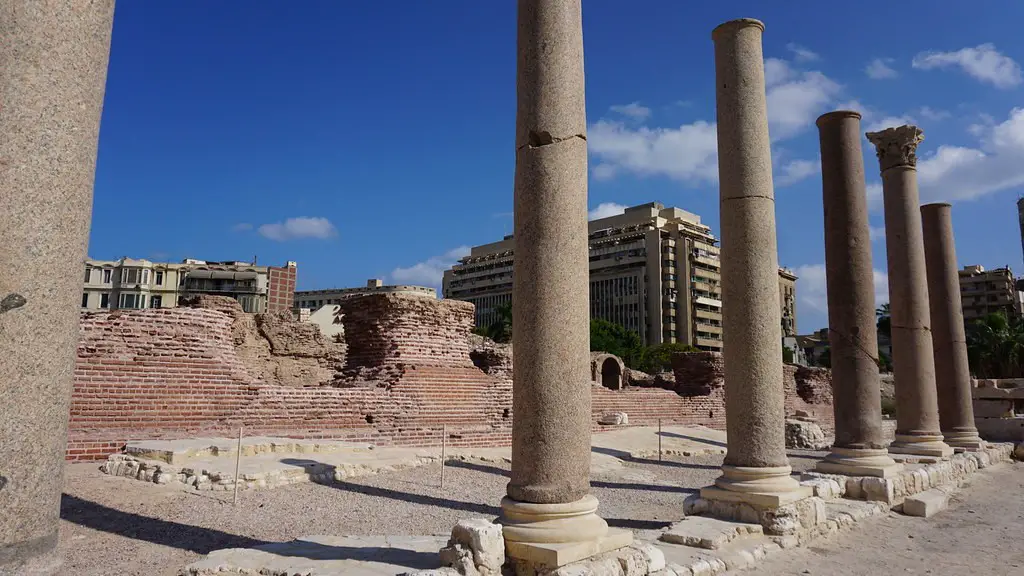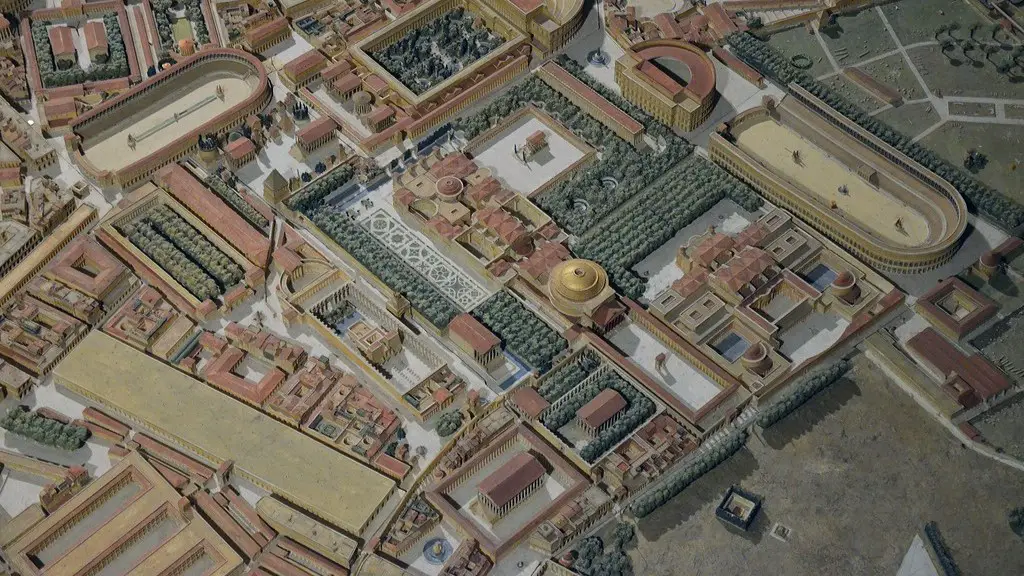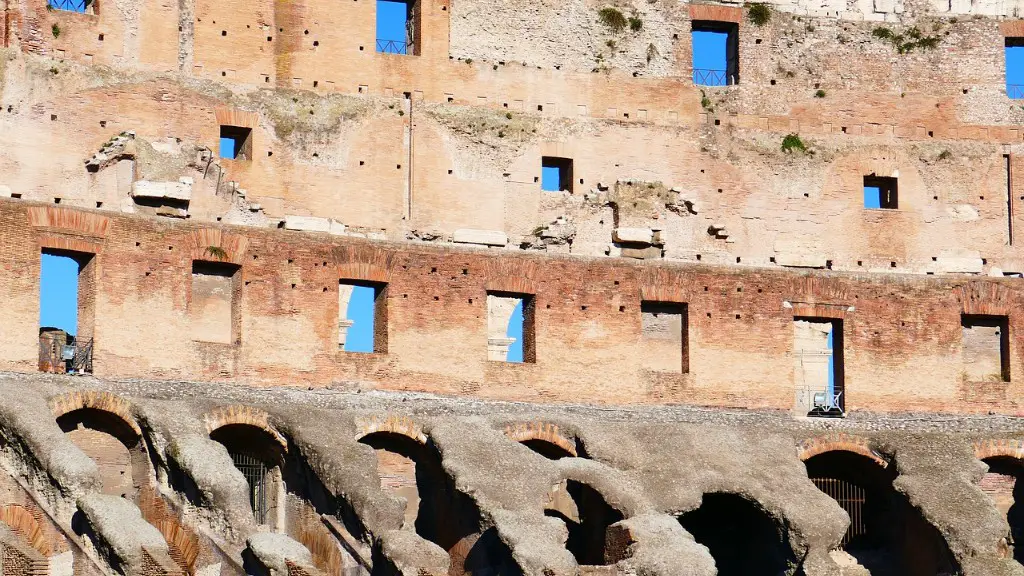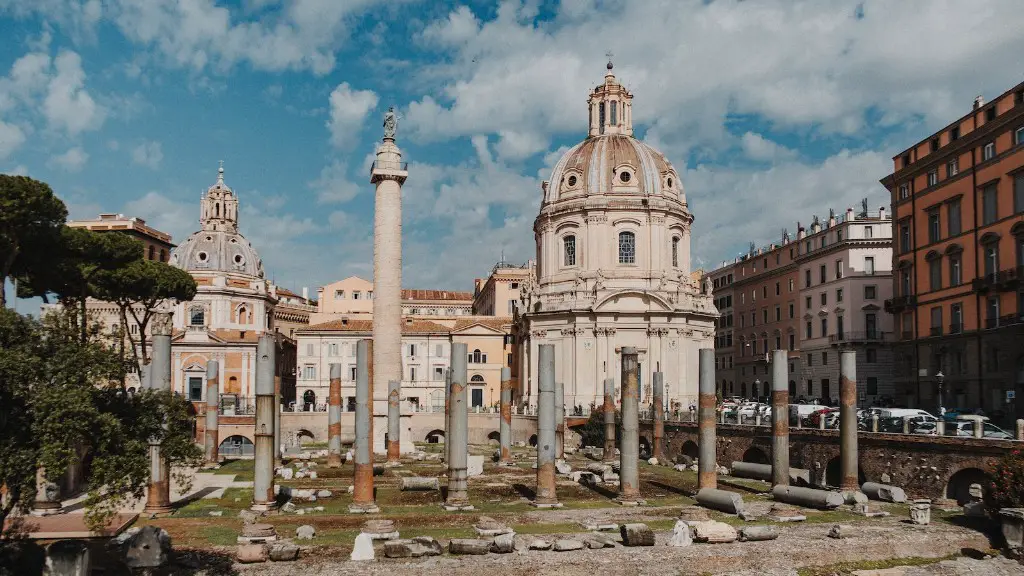Throughout history, family has been one of the main pillars of various cultures. In ancient Rome, family was so powerful that it was often seen as the cornerstone of the organization of society. It is believed that the concept of family in ancient Rome was a confluence of different traditions, both Greek and Etruscan, coming together to form a very influential system of its own. This ancient Roman civilization remained entirely focused on the family and its many activities, so much so that it was on the foundation of the family that the strength and prosperity of the state was built.
The family played a central role in Rome since the Founding of Rome in 753 BC. According to Roman custom, a family was composed of a pater familias, a male head of the household who held absolute authority over his family. This role was typically filled by the father or grandfather, but in some cases, it could also be filled by a widower, adopted son or grandson. The pater familias was granted immense legal authority over his family including the power to make decisions concerning marriage, property and other matters of importance. This legal power, combined with the strong moral and social obligations imposed on the family, meant that family was an incredibly powerful force in Roman life.
It was through the family that Rome’s legal system functioned and this was largely based on paternal power. Roman law codified the nature and extent of the patriarch’s power, meaning that he had authority over his children and their activities. This power also granted him the right to punish any breach of family responsibility. Such punishments could be severe and included disinheritance and even death.
The family was also important for ensuring the continuity of customs, beliefs and social ideals. The family was held in high regard, especially those of the upper classes, as it was seen as a representation of the virtues and accomplishments of Rome. Its importance meant that members of the family had to live up to the high standard of morality and behaviour set for them by their ancestors. Families that demonstrated these virtues were highly respected in Roman society and were given positions of influence and power, furthering the importance of family.
The social life of ancient Rome was also heavily entwined with the family and many of the communal activities that took place revolved around honouring and celebrating the family. Such activities included religious ceremonial feasts and sacrifices, public funerals and public showings of leadership and financial resources. These activities were all intended to glorify the family and, as a result, strengthen the relationships between members of the family.
In times of war and crisis, the family was essential for protection. This was due to the fact that in ancient Rome all members of a family had a moral and legal obligation to fulfill certain responsibilities. Family members, and especially the pater familias, were obligated to act on the behalf of the family to preserve and protect them from harm. This took on a more literal sense during times of war and other periods of distress, as the family was expected to act in defence of the state.
The power of the family in ancient Rome was so great that it influenced many aspects of life. From the legal system to social activities and communal obligations, the family was seen as the core of Roman life and it served as an example for the rest of society. The social conventions of the Roman family still remain relevant and are a testament to the importance of family in any culture.
State Influence on Families
In ancient Rome, families were highly influential in the organization and governance of society. State efforts to centralize power and control emphasized and increased the significance of families. The state’s dependence on families, as a basic governmental building block, was visible in the political, social, and economic realms.
The state was highly involved in the institution of marriage and this represented a large part of its influence on families. Marriage regulations, for instance, were instituted to ensure the security of citizens, provide rights to people belonging to certain classes, and to prevent population micro-management by the state. State efforts to control the institution of marriage, therefore, helped to promote a sense of stability, consistency and safety in the Roman Republic.
In addition to its control of marriage, the state also sought to control the activities of the family. It promulgated a variety of laws that applied to families, such as the Lex Papia Poppaea and the Lex Julia, meant to rein in such activities as the marriage of minors and the granting of inheritances. The state also enacted laws that sought to limit the amount of wealth and power any one family could accumulate, with the intention of preventing social unrest.
The state even meddled in the internal affairs of the family, with the right to expel citizens from the city or colony if they were found to be immoral or engaging in socially unacceptable behaviours. This enabled the state to exercise control over the people and over their families.
Eventually, the state’s control over the family was so great that it was almost as if the state was seen as a part of the family. Through these numerous laws and regulations, the Roman Republic sought to regain control in an increasingly decentralized world.
Family Influence on the Economy
Families in ancient Rome had an enormous influence on the economy. These were the essential building blocks of the economy, providing both labour and capital, with the upper class families playing a central role in this system. This top class of families was characterised by the support and protection of their lineage and by their great wealth.
These families held key positions in business and politics and often used their economic power to shape the economy. Through the use of their resources, these families were able to control the market and set prices for goods and services. They also had a large influence on investments, as most of these families were involved in financial transactions.
In addition to their influence on the market, these upper class families also used their power to influence the legal system and ensure their interests were taken into account. Families were connected through a variety of legal institutions, such as patron-client relations, and this allowed them to protect their interests and maintain their power.
The activities of the upper class families had far-reaching implications for the lower classes as well, including the peasantry and the lower classes of craftsmen and merchants. These classes relied on the services of the upper class families, such as legal protection, investment opportunities, and other ways in which the families could secure an advantage over their competitors.
As a result, the power of the family in ancient Rome was highly influential both in the political and economic arenas. This power was wielded by an upper class of families that held a privileged position in Roman society. Through their considerable resources and their influence over the legal system, these families had immense influence over the Roman economy.
Family Influence on Religion
In ancient Rome, the family had a profound influence on religion. It was believed that the family was connected to the gods and that, by honouring their ancestors, the family could ensure their favour. This belief was particularly evident in the realm of religion, in which the religious activities of the family were highly esteemed.
For instance, a major aspect of Roman religion concerned their devotion to the family’s household gods. These gods were considered to be guardians of the household, protectors of its members, and were believed to provide guidance to the family. All family affairs were conducted with an eye towards appeasing these gods, and each major decision and activity was accompanied by offerings and sacrifices.
The public religious festivals and ceremonies observed in Rome were also largely determined by a family’s social standing. Families of the upper classes tended to receive more attention during such occasions, as these families were considered to be closer to the gods. Additionally, families of lower classes had to decorate their homes, perform rituals, and offer sacrifices in order to prove their piety to the gods.
Therefore, it is clear that families in ancient Rome had a powerful influence on religion in the form of household gods, public ceremonies and rituals, and offerings to the gods. Religion was closely intertwined with the everyday life of the family and this connection enabled Rome to develop its culture and social structure.
Family Influence on Education
The family had a major influence on the education of its members in ancient Rome. From the earliest ages, families were responsible for training their children in the proper etiquette and manners, as well as teaching them the skills and knowledge needed for their future lives. These educational responsibilities were carried out, in large part, by the mother of the family.
However, as the children grew older, their education became more formalised. The fathers began to take a more active role in their children’s education. Most of the wealthier families employed tutors to provide their children with a proper education in the classical sciences, literature, and other areas. The poorer classes, however, made use of slave-tutors or relied on their own parents for the education of their children.
Families also taught their children how to be good citizens, how to behave with propriety, and how to interact with other members of Roman society. These lessons were especially important, as they were considered essential in order to lead a successful life in the Roman Republic. This emphasis on attaining the status of a “good citizen” further emphasised the role of the family in education.
Overall, the family had a profound influence on the educational life of its members in ancient Rome. From the earliest stages of life, children were taught the values and behaviour expected of them by their parents and the wider Roman society. The family was also largely responsible for their formal education, with fathers and mothers providing their children with the skills and knowledge needed for their future lives.
